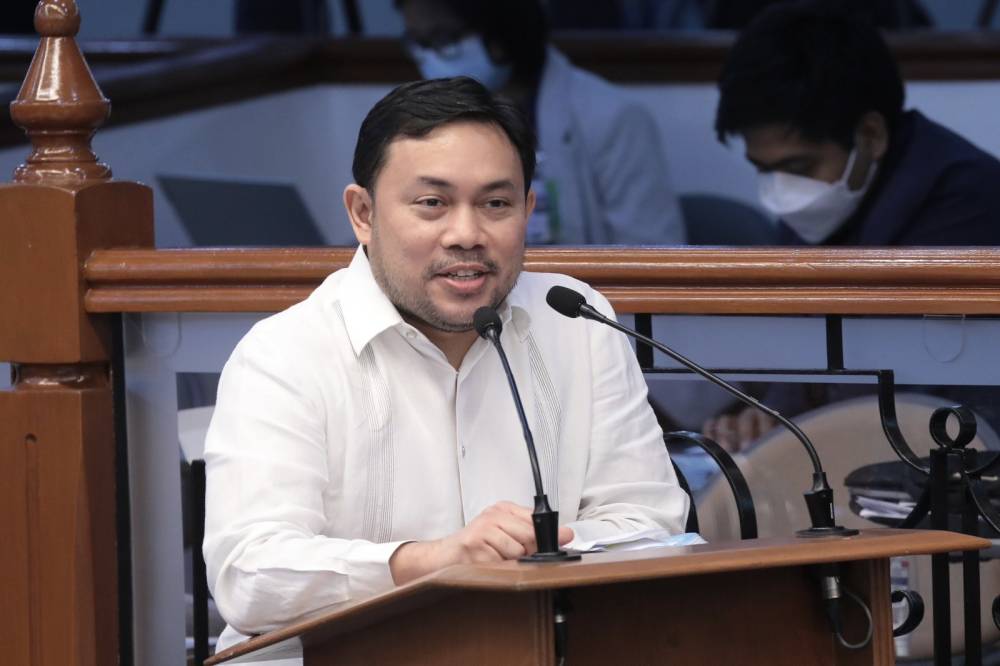The Maharlika Investment Fund (MIF) bill, Philippines’ first-ever sovereign wealth fund, is designed to catalyze economic development by mobilizing government financial assets that are otherwise limited in use by current legal frameworks.
“With the Fund’s dual objectives of optimizing financial returns and accelerating the development of infrastructure and other priority projects in key sectors, this will be an important instrument to generate consistent and stable investment returns to advance the Philippines’ long-term development goals,’’ Senator Mark A. Villar said in his sponsorship speech seeking the passage of the MIF bill by Congress.
In his speech, Villar, chairman of the Senate trade committee, said the MIF would support the administration’s economic goals set in the Medium-Term Fiscal Framework, the eight-point Socioeconomic Agenda, and the Philippine Development Plan 2023-2028 in a way that would ease the pressure on the Government’s fiscal space.
Villar said the initial capitalization of the Maharlika Investment Corporation would come from the investible funds of the Land Bank of the Philippines (LBP) and the Development Bank of the Philippines (DBP), as well as the contributions of the national government.
“The latter will include dividend remittances of the Bangko Sentral ng Pilipinas, the National Government’s share of PAGCOR’s (Philippine Amusement and Gaming Corporation’s) income, and proceeds from privatization and the transfer of assets. Other sources such as royalties and special assessments may be tapped as well,’’ he stressed.
Villar pointed out that Landbank’s investment to the Maharlika Investment Corporation would only account for around 3.7 percent of its investible funds, while the DBP’s investment will be equivalent to around three percent of its investible funds.
‘’These GFIs are likely to earn more than what they are earning now considering that they are investing in conservative investments such as government securities,’’ he told his colleagues in the 24-member Senate
The involvement of these GFIs as contributors of the initial seed fund is reasonable and would not crowd-out other lending obligations that they need to fulfill under their respective mandates, he point4ed out
‘’In fact, the expected return of Maharlika, which is estimated to be around 8.6 percent on average, is much higher than their cost of capital and the return in their current investment placements. Globally, capitalization of sovereign investment funds is no longer limited to surplus revenues generated by natural resources. It also includes varying sources, including budgetary contributions, as in the case of the Indonesia Investment Authority,’’ he added.
Villar said ‘the MIF would quicken the implementation of NEDA-endorsed infrastructure projects, in particular big-ticket infrastructure such as in green and blue projects, countryside development, and other employment-generating projects,’’ he said.
Key examples, according to Villar, include public road networks, tollways, green energy, water, agro-industrial ventures, and telecommunications. These critical infrastructures offer higher returns on investment and greater socioeconomic impact on the economy.
‘’For this reason, I am urging my fellow lawmakers to consider the passage of the Maharlika Investment Fund Act. This is a timely measure that should be given utmost attention and urgency by this Congress,’’ he explained.
Villar cited the approval by the National Economic Development Authority (NEDA ) Board of194 high-impact priority projects under the new Infrastructure Flagship Projects list for the Build, Better, More program.
President Ferdinand ‘’Bongbong’’ R. Marcus Jr. is the board chairman.
Villar emphasized that the MIF would play a key role in accelerating the implementation of these big-ticket projects.
He said some of these big-ticket priority projects might be undertaken by Maharlika Investment Corporation through co-investments with global financial institutions and multilateral partners, opening another corridor for Foreign Direct Investments (FDI).
‘’This is especially significant considering that the Philippines will soon lose its access to official development assistance as the country graduates to upper middle-income status,’’ he said.
Villar explained that sovereign wealth funds are tried and tested investment vehicles used by governments in developed and emerging countries to achieve their economic goals.
‘’Having our own sovereign wealth fund will grant us access to the world’s sovereign wealth fund community, which is abundant in opportunities for co-financing and knowledge transfer,’’he said.
‘’In fact, more than fifty countries already have their own sovereign wealth funds. Some examples include Indonesia, Vietnam, and Kenya. The Indonesia Investment Authority or INA, in particular, is often cited as an ideal model for the Philippines as it was used for investing in big-ticket infrastructure projects,’’ he added.
Villar said that as a government-owned and -controlled corporation, the Maharlika Investment Corporation would be run professionally and on a commercial basis. It will pay taxes, be governed by the Government Procurement Reform Act and its rules, and shall be subject to the provisions of the GOCC Governance Act of 2011.
To ensure that these gains would be realized, the Fund would be established with the highest standards of accountability, fiscal responsibility, and good governance.
The proposed Fund will adhere to the Santiago Principles, which pertain to the generally accepted principles and practices to ensure the effective operations of sovereign wealth funds globally, and will be governed by the relevant investment and risk management guidelines.
The Maharlika Investment Corporation will be governed by a Board of Directors with nine (9) members. The Secretary of Finance will serve as the Chairperson while the CEO of the Maharlika Investment Corporation will be the Vice Chairperson. Members include the President and CEO of the Land Bank of the Philippines and the Development Bank of the Philippines; two regular directors; and three independent directors from the private sector.
The economic team will work closely with the Fund’s administrators as its Advisory Body to help ensure that they will comply with proper financial reporting and auditing standards. This is also to align investment decisions with fiscal and monetary policies.
The Advisory Body shall be composed of the Secretary of the Department of Budget and Management, the Secretary of the National Economic and Development Authority, and the National Treasurer.

